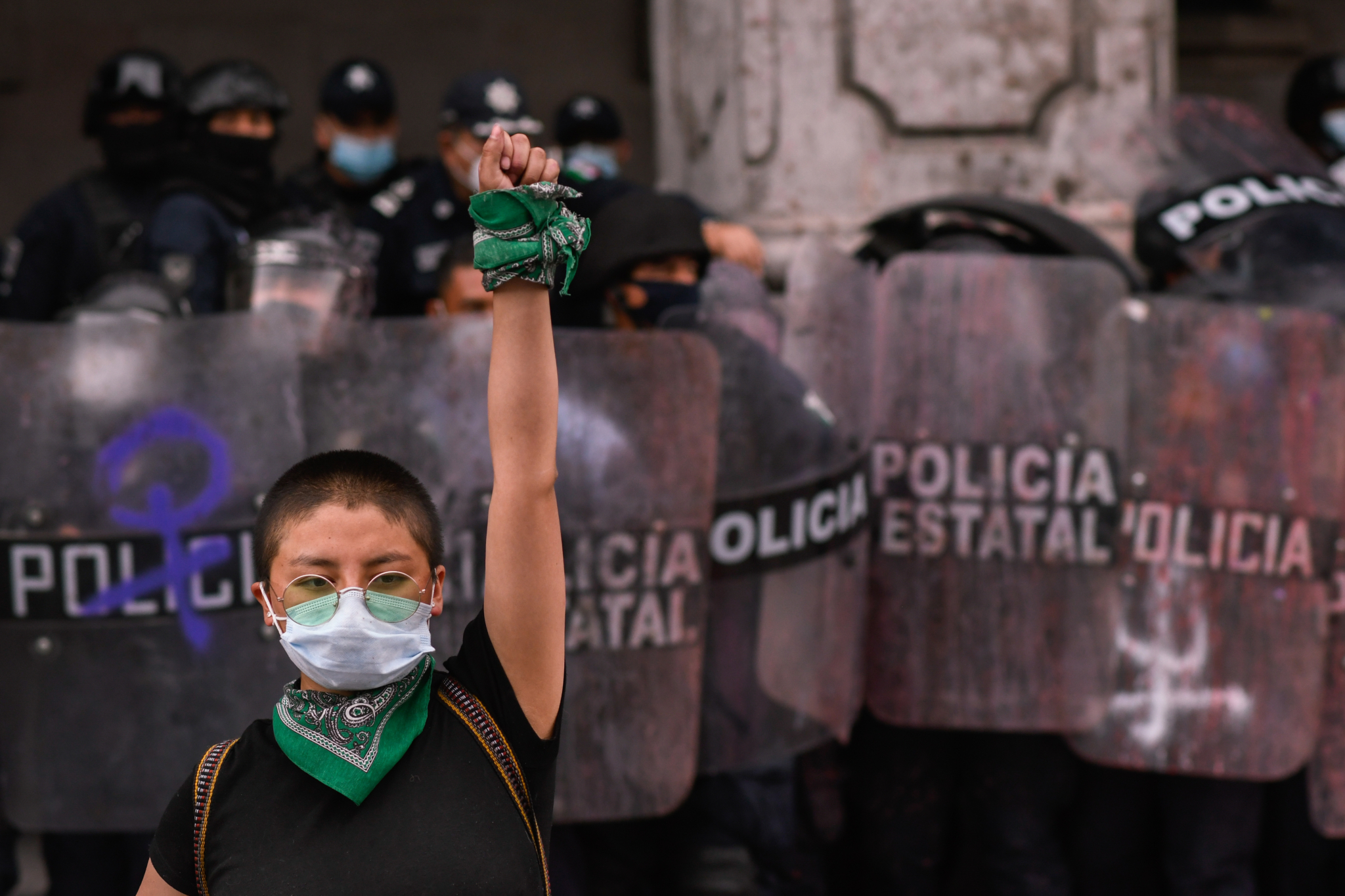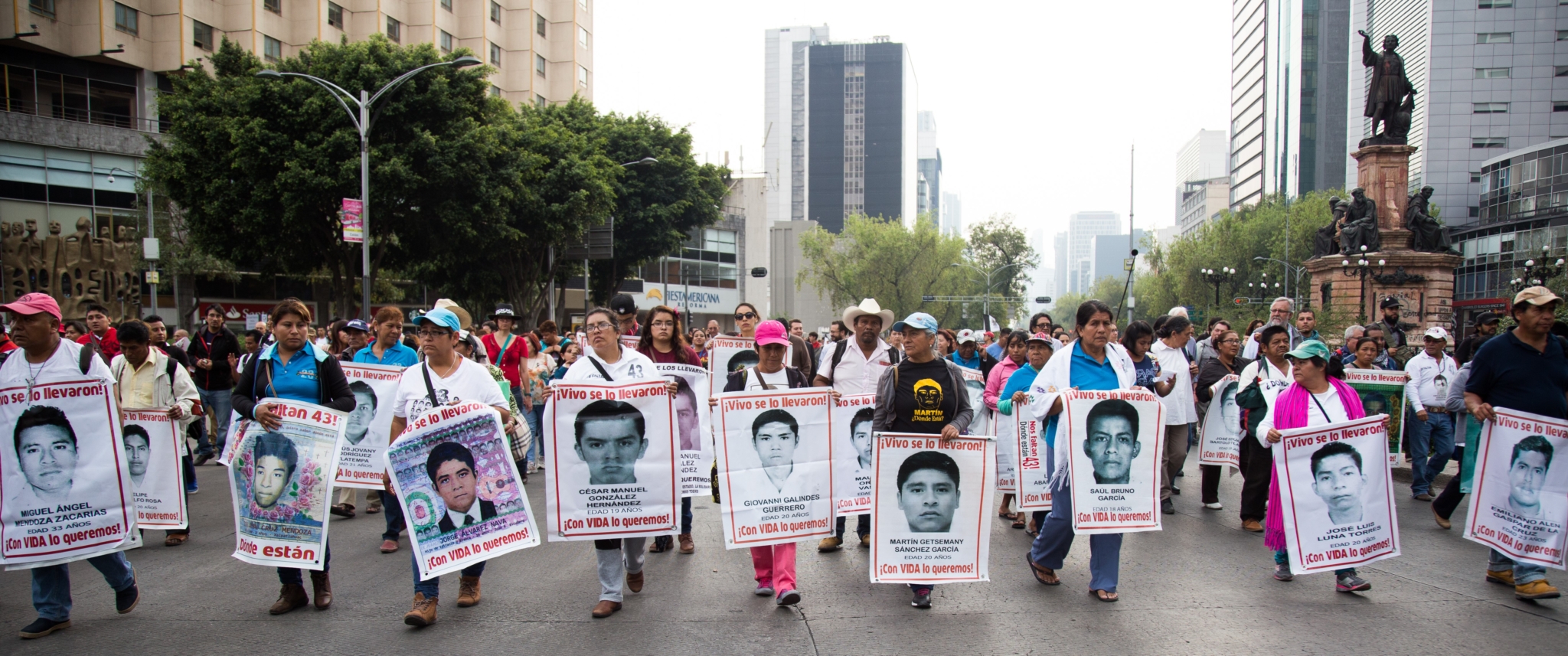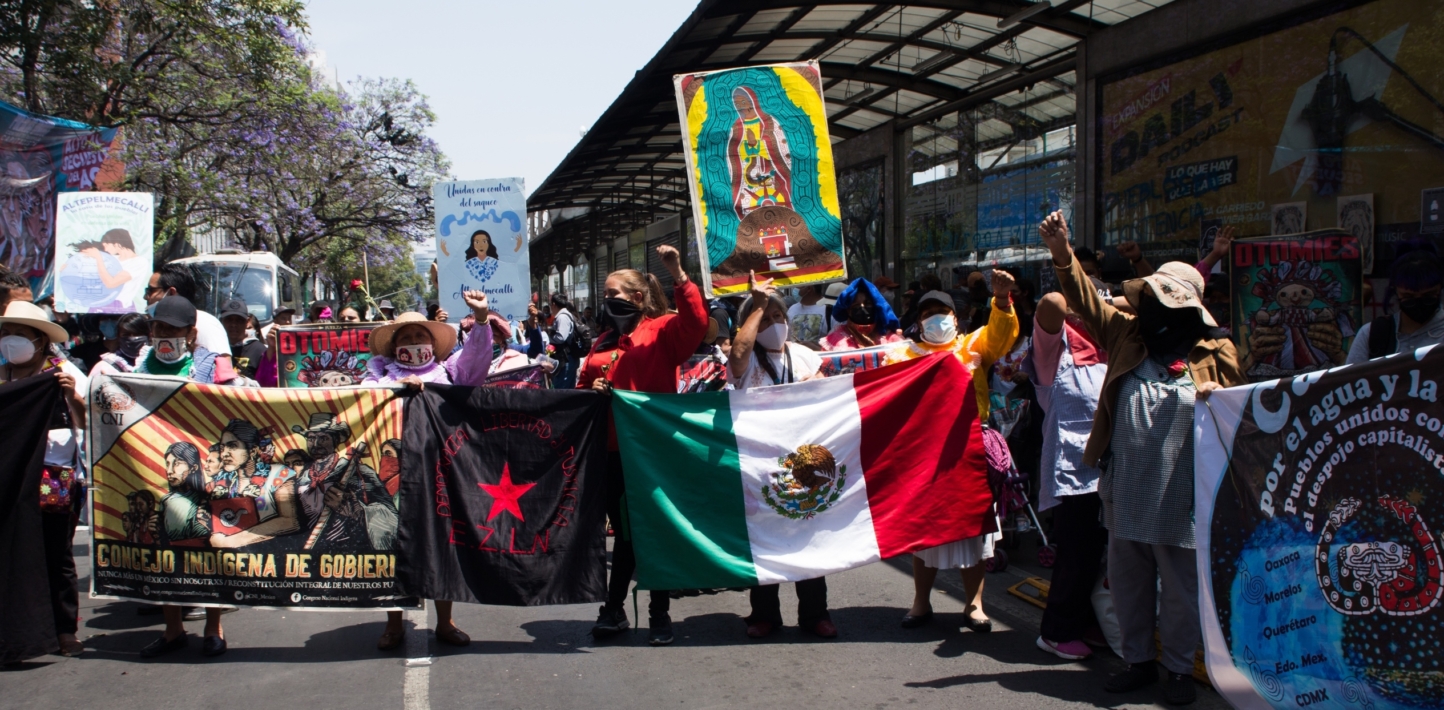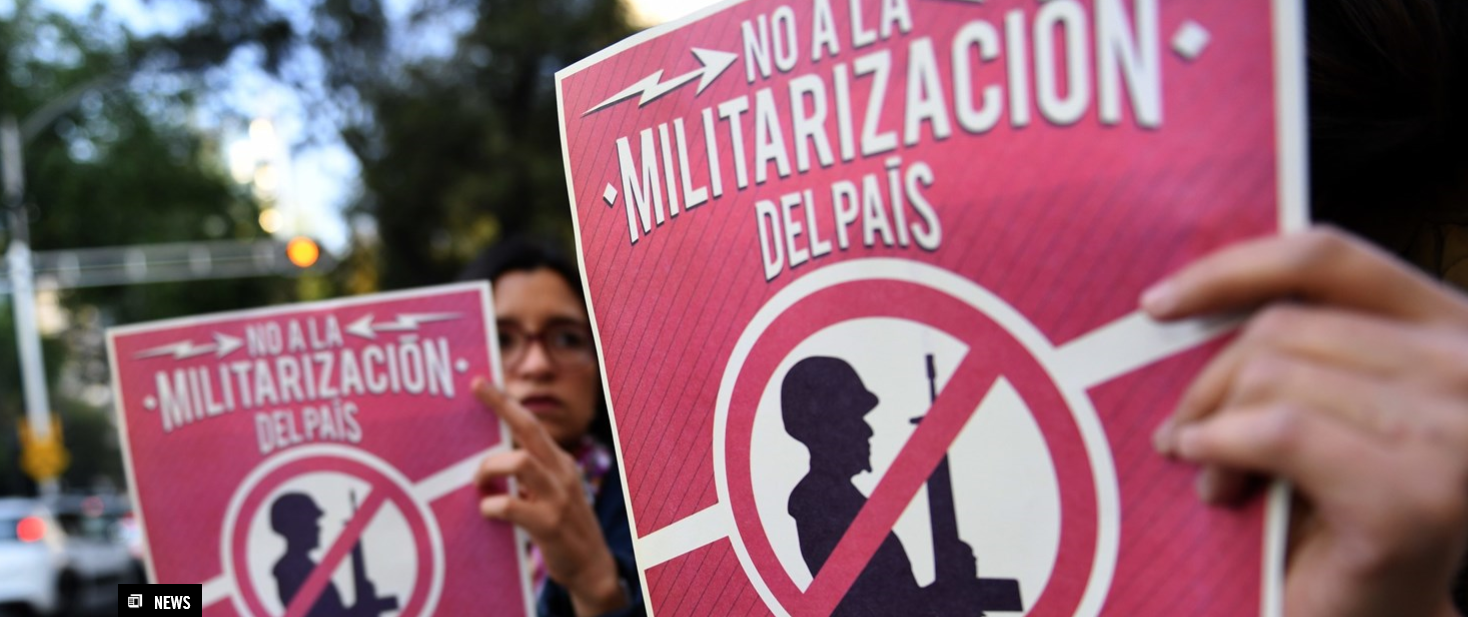
Many Canadians know Mexico as a winter get-away, a tourism paradise. But the vast majority of Mexicans experience a very different reality.
Poverty, discrimination and inequity mean that millions of Mexicans face insurmountable challenges to meet basic human needs with regard to food, water, housing, health and education. Yet those who mobilize in defence of these rights are repaid with threats and deadly attacks, particularly when their activism challenges powerful economic interests. The perpetrators are rarely brought to account, creating a climate of injustice which fuels more abuses.
In a January 2024 report to the United Nations, Amnesty International concludes that Mexico is “rushing headfirst into an abyss of human rights”.

Indicators of Mexico’s grave human rights crisis include:
- More than 114,000 people registered as missing and disappeared between 1962 and the end of 2023, including the high-profile case of 43 students from a teacher-training college in Ayotzinapa, a state crime involving the criminal group Guerreros Unidos and Mexican government officials, including members of the armed forces. Relatives searching for disappeared and missing people face enforced disappearance themselves, as well as threats and killings.
- Ongoing reports of grave human rights violations, including widespread use of torture, extrajudicial executions and excessive use of force by army and navy personnel, amid a heavily militarized public security policy.
- Routine violations of the rights of Indigenous peoples, including the right to free, prior and informed consent regarding resource extraction projects on Indigenous lands. Indigenous defenders of land and water continue to be threatened, attacked and killed. The criminal justice system is also often used as a deterrence mechanism for those protesting violations of Indigenous rights and territory. Leaders are accused with fabricated charges, threatened with jailing, and denied impartial justice.
- An growing epidemic of gender-based violence against women. More than 20,000 women were killed between 2018 and 2023. Justice is rare. Investigations of femicides have been marked by shortcomings including loss of evidence, failure in applying a gender perspective, and threats to the victims’ families. The government has made dangerous false accusations slurring feminists and human rights defenders who protest against government inaction on gender-based violence. Security forces have violently repressed women protesters in a number of states, including with gender-based verbal and physical abuse and sexual violence.
- Others exercising their right to peacefully protest also face violations of their rights, including stigmatization, repression, unnecessary or disproportionate use of force, threats, digital harassment, lack of due process and access to justice.
- Attacks, intimidation and record levels of murders of journalists, creating a climate of fear that prevents the truth from being told.
- Hundreds of thousands of migrants and asylum seekers have been detained in overcrowded immigration detention centres, subjected to discrimination and ill-treatment, and deported back to situations of risk. Authorities continue to collaborate with the US in implementing US policies that undermine the right to asylum and the principle of non-refoulement.
Canada and Mexico have long enjoyed a special relationship, cemented by a free trade agreement, the Canada-United States-Mexico Agreement (CUSMA), and cooperation in other key areas. Amnesty International Canada has repeatedly called for the protection of human rights to be the overriding priority for all of our engagement, particularly in light of the current crisis.

Take Action
114,000+ Disappeared in Mexico: call for action via this e-action to President López Obrador
Ensure truth and justice for the families of the disappeared: letter writing action
Speak up for homeless families of climate-displaced community of El Bosque: send an email via this E-Action

Learn More
Rushing Headfirst into an Abyss of Human Rights? Submission to the 45th session of the UPR Working Group, January-February 2024
On the frontline: Defending Indigenous lands and Indigenous women’s bodies in northern Mexico: Blog, December 2023
We may be the first people displaced by climate change in Mexico but we won’t be the last: Blog, October 2023
Land, environment defenders criminalized for exercising right to protest, Press Release, September 15, 2023
Mexico: Land and Freedom? Criminalizing Defenders of Land, Territory and the Environment: Report, September 2023
Video testimony by Rosa Marina Flores Cruz, Assembly of Indigenous Peoples of the Isthmus, in Amnesty International Canada’s Earth Day is Every Day webinar, April 2023
Fatal fire in migration detention centre is result of inhumane policies: Blog, March 2023
The (R)Age of Women: Stigma and Violence against Women Protesters, Report, March 2021











